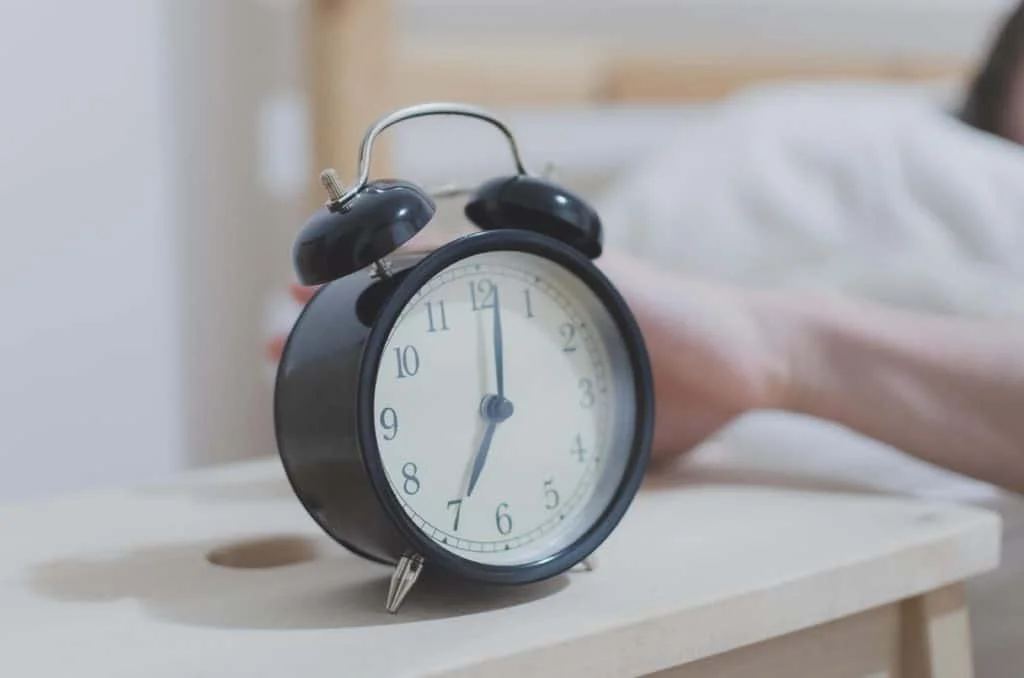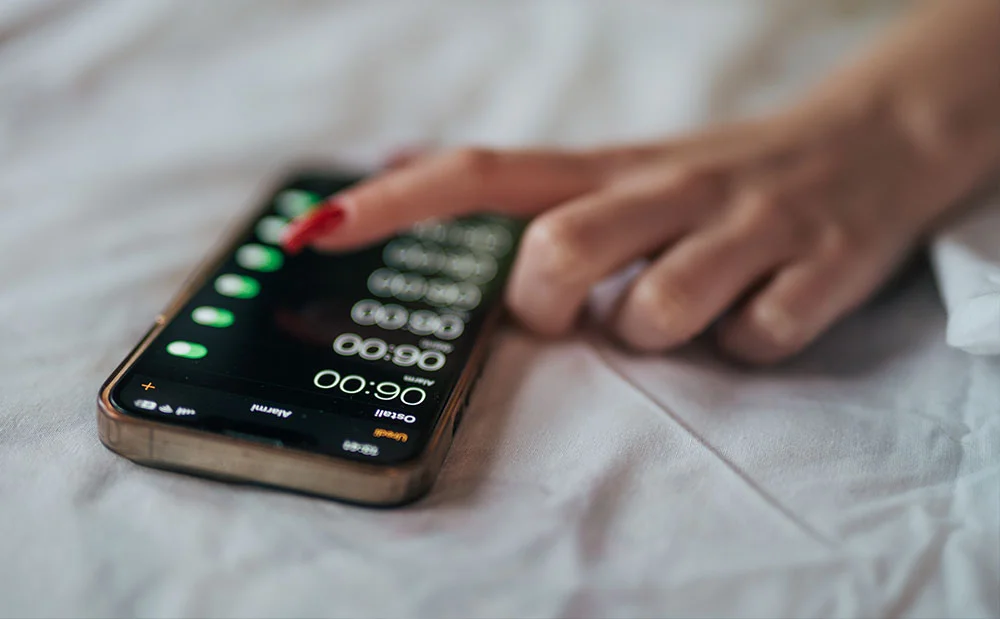
It’s a sleep trend that’s taken TikTok by storm, and according to recent data published by American Academy of Sleep Medicine (AASM), 15 percent of Gen Z have tried this viral sleep trend of sleeping in 90-minute increments. (1)
The AASM’s data shows that Gen Z, or those 18-27 years of age, are keen to try different sleep trends, including sleeping in 90-minute increments. By contrast, only 4 percent of “boomers” have tried this strategy. This trend took to TikTok and is based on the idea that a normal sleep cycle averages around 90 minutes in length. Videos on social media have claimed that if you wake up at the end of one of these 90-minute cycles, you’ll wake up feeling more refreshed.
One young TikTokker shares his logic: “Let’s say I have to wake up at 7 a.m. But I spent the whole night scrolling on TikTok and now it’s 3:30 a.m. If I fall asleep at 4, and set my alarm for 7, I’d wake up at the end of my REM cycle.” He adds that by waking up at the end of the REM cycle you’d be “just as refreshed” as after 8 hours of sleep.
Other TikTok “sleep gurus” without relevant credentials have gained significant attention for similar advice, such as one tired mom whose video was viewed over 8.1 million times, who shares that you should wake up at the end of a 90-minute cycle to feel “refreshed.” She suggests people aren’t considering their bedtime carefully, and should be working backward in 90-minute blocks to see when to go to sleep. Just like timing your meals, timing your bedtime can actually impact your sleep — but not to the extent these TikTokkers claim.
The concept behind the hack has some merit, though nowhere enough to get the benefits of a full night’s sleep in just an hour and a half. According to the National Heart, Lung, and Blood Institute, we sleep in two phases: REM and non-REM (Rapid Eye Movement). Around every 80-100 minutes, the cycle begins again, and most people have four to six cycles per night, waking very briefly between them. There is some data to suggest that waking after you’ve had at least four full sleep cycles can be beneficial, but no evidence to suggest you will feel just as refreshed if you only sleep for one of them. Instead, experts recommend getting at least 8 hours of sleep per night, though if you are counting in 90 minute increments, you can conclude that 9 hours would be even better.
If you do want to try to hack your sleep to optimize rest, instead focus on consistent bedtimes. If you are all over the place with your bedtimes, your sleep can become disrupted, resulting in health problems and even mood disorders. So, though you can work backward to plan bedtime based on the number of hours you need, don’t stress too much about getting exactly a certain number of sleep cycles. Simply go to bed around the same time each night.
And finally, as that other 96 percent of boomers who chose NOT to try this at home might tell you, be wary of that TikTok advice, especially when it’s calling for intentional sleep deprivation.

“Sleepy Sorbet” Is Everywhere, But Does It Work? I Tried It Out Myself

Addicted to Scrolling: TikTok and Sleep

Black Cumin Is the Newest Ingredient TikTok Claims Is Good for Sleep

Apple’s ‘By the Seaside’ Might Be the Worst, But It Could Be The Solution to Groggy Mornings
Sources
1. AASM; “AASM Sleep Prioritization Survey,” American Academy of Sleep Medicine; https://aasm.org/wp-content/uploads/2024/07/sleep-prioritization-survey-2024-social-media-trends.pdf; July 2024.

























